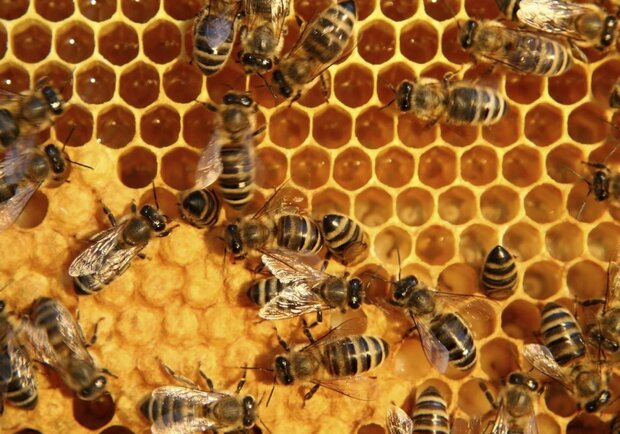“This is a very good opportunity to strengthen the position of Iran's honey in the world markets,” Touraj Saremi, the head of Iran’s beekeeping development plan, told Fars news agency.
The shipment will come in the wake of President Ebrahim Raeisi’s landmark visit to China in February, which resulted in the signing of several agreements. Iran’s Minister of Agriculture Javad Sa’adatinejad was part of the delegation, who signed a document for exports of Iranian products, including honey, to China.
Normally, China makes about 500,000 tonnes of honey a year, or about a quarter of global output. It exports more than 100,000 tonnes to places like Europe and the United States. However, a coronavirus outbreak and the subsequent stringent measures to curb the virus have taken their toll on the country’s beekeepers.
According to the Food and Agriculture Organization of the United Nations, Iran holds the third rank in the world in terms of honey production after China and Turkey.
Saremi, however, said FAO has to update its statistics on Iran which would probably place the country in second place, Press TV reported.
Iran, he said, produced 136,000 tonnes of honey in 2022, but FAO has cited a much lower figure of 77,000 tonnes for the year.
Nevertheless, Iran’s honey production capacity is even higher due to its plant diversity and natural resources. There are 8000 plant species in Iran, which are three times more than those in the European continent.
Fars in the south and the northwestern provinces of East and West Azarbaijan, Ardabil and Kermanshah account for 65 percent of the country’s honey production.
Under a development plan provided by the Animal Science Research Institute of Iran, beekeepers are about to raise the average honey production in each colony to 4 kg from 3 kg now.
The most important export destinations for Iranian honey are China, Bahrain, Kuwait, Qatar, Oman, Germany, England, Canada, Hong Kong, Australia, Indonesia, Malaysia, Iraq, and Lebanon.
Beekeeping has a long tradition in Iran, dating back to 2,000 to 3,000 years ago, though apiculture, as we know it in its modern and industrial form, started in the country around three decades before.
Across the world, demand for honey is growing as awareness about the health benefits of sweet food and the importance of honey bees in the food chain is rising.
Meanwhile, the increasing number of innovations in honey harvesting is driving growth prospects for the global honey food market.
In 2018, the United Nations announced an annual World Bee Day on May 20 to raise awareness of its importance and declining numbers.
Iran also owns the world’s fourth largest bee colonies put at 8.4 million, which are held in more than 85,000 apiaries, he said.
As many as 138,000 people are directly involved in apiculture, which brings them a healthy income by producing honey, beeswax and propolis.
However, the overall value of Iran’s honey exports is put at 5.6 million dollars.
Around the world, adept beekeepers make better earnings by extracting high-end products, such as bee venom and royal jelly.
The average raw price for each kilogram of royal jelly is $355, but this value can increase multi-fold if the royal jelly is turned into cosmetics and toiletries.
As for bee venom, each gram of the apitoxin sells for $80 which is a very high price given the dollar rate, but Iranian beekeepers are mostly not adept in it.
Food security is a key policy area for global state planners, and for Iran, it is additionally crucial in the face of a protracted drought which is adversely affecting harvests and narrowing the agricultural products basket.
It has gained traction amid a US bid to starve Iran of its oil revenues and Iranian officials say the country now runs the best chance of weaning itself off petrodollars.
The resistance economy, initiated by the Leader of the Islamic Revolution Ayatollah Seyyed Ali Khamenei, is Iran’s roadmap to circumvent sanctions.
It includes increasing the country’s resilience by substituting local inputs for imported goods, checking the smuggling of goods and increasing barter trade.
As super-important pollinators, not only do honey bees contribute directly to food security, but they are also key to conserving biodiversity. They allow many plants, including food crops, to reproduce and preserve the food chain.
FAO estimates that out of some 100 crop species, which provide 90 percent of the food worldwide, 71 are bee-pollinated.
Beyond the importance of pollination for food security, bees are key to maintaining the ecological balance and ensuring biodiversity conservation.
The bee is one of the three insects after which chapters are named in the Holy Qur’an – the others being the ant and the spider.
MNA/PR

























Your Comment